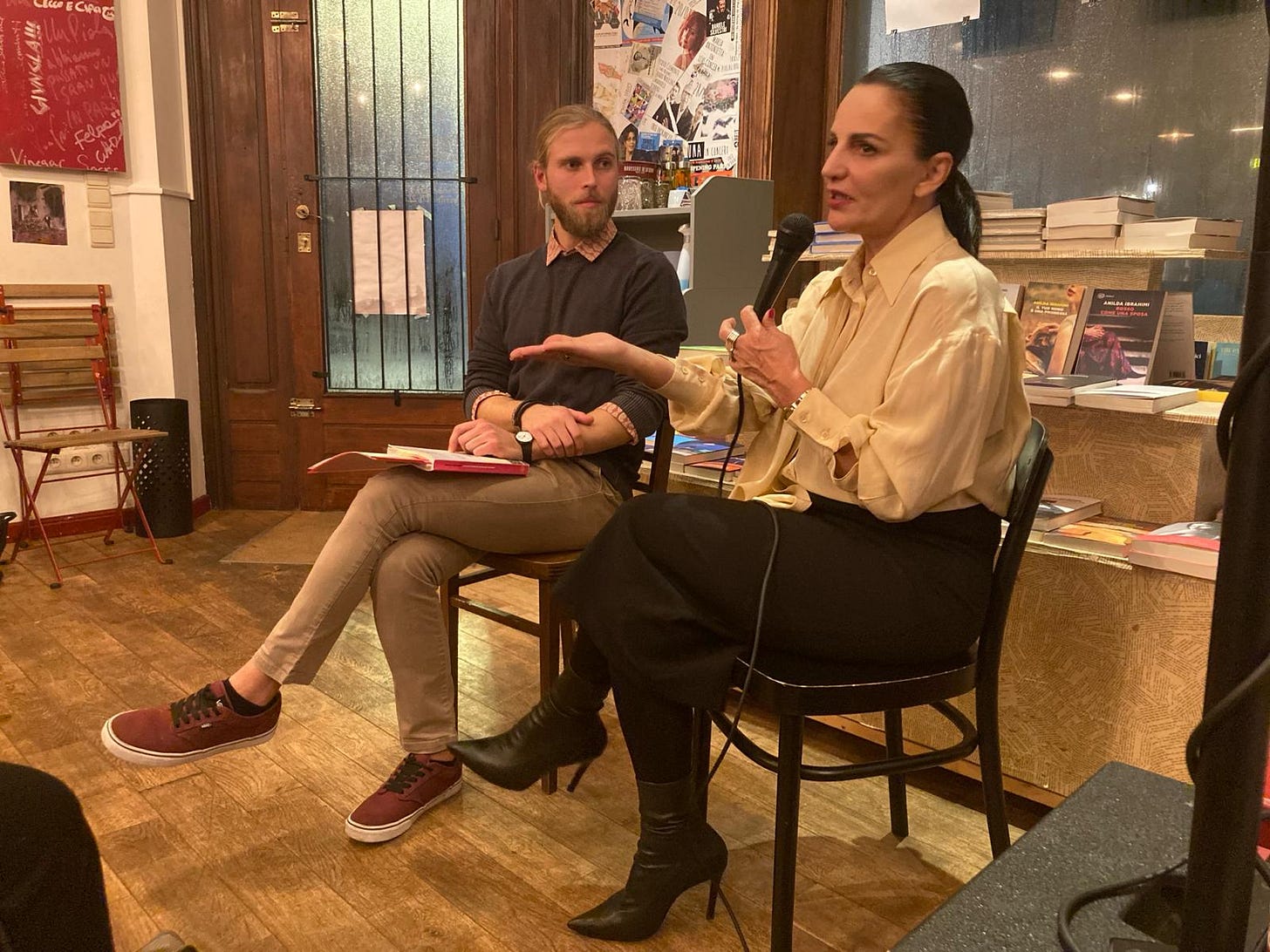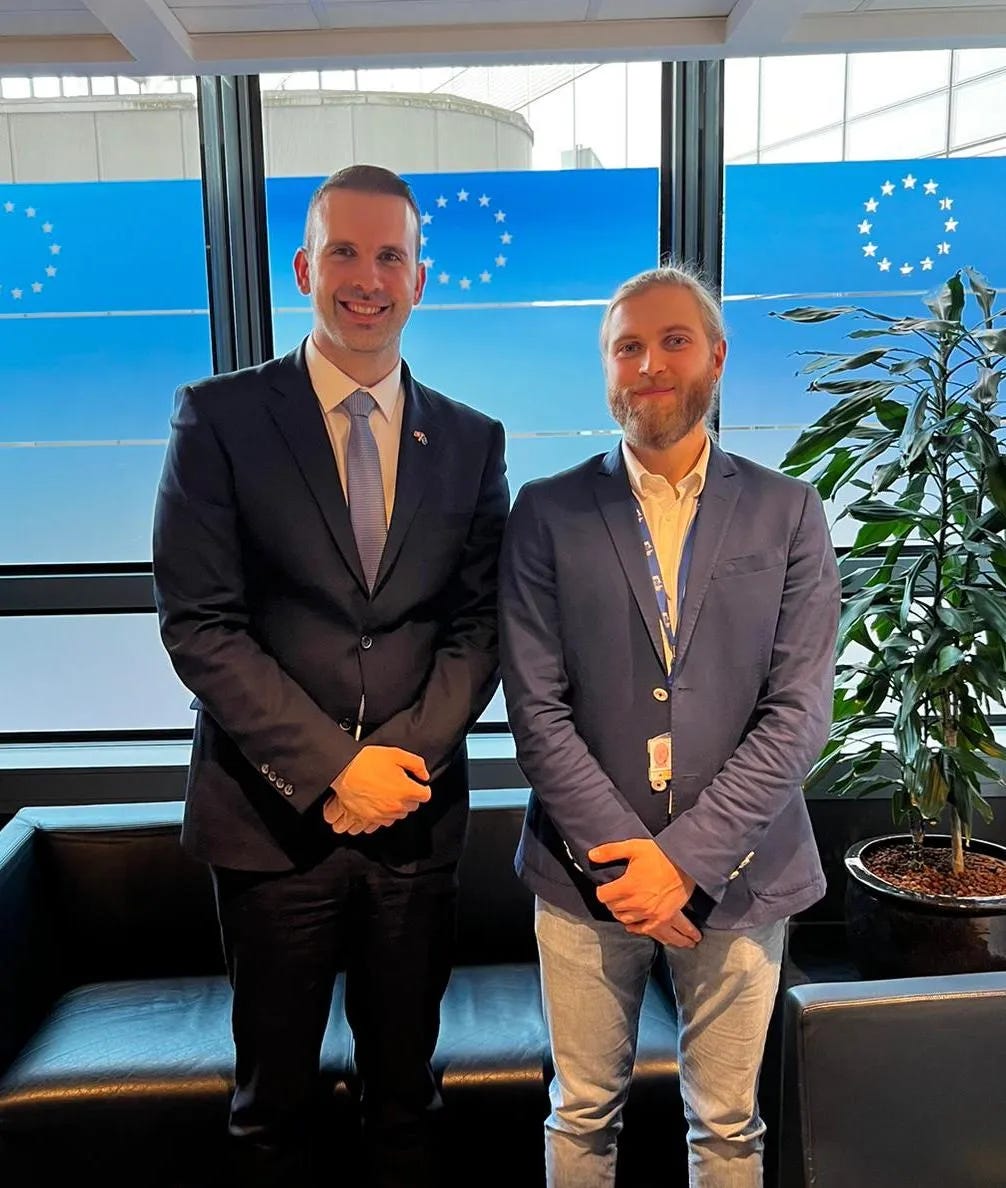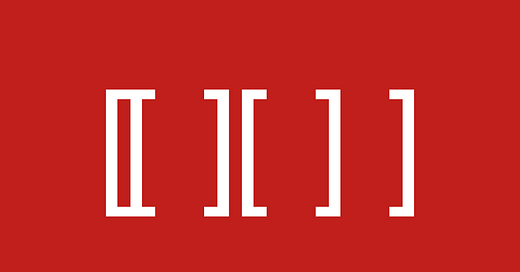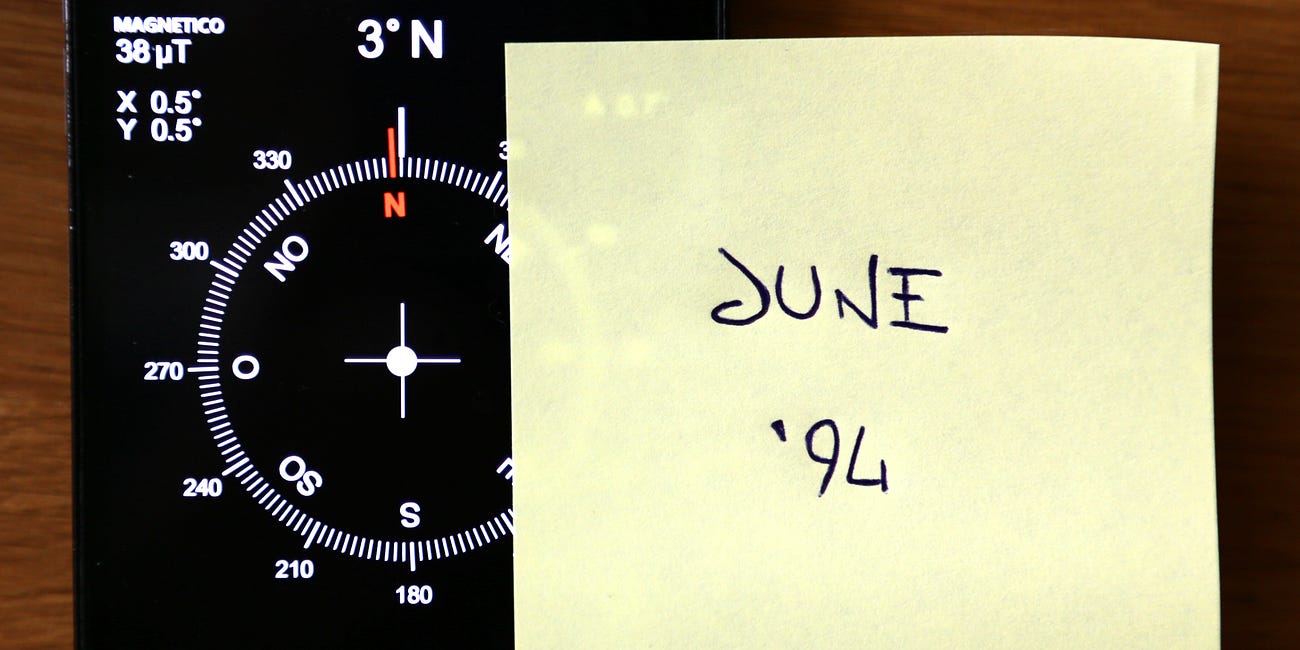S4E22. Fo(u)r us
BarBalkans' fourth year comes to an end. A season that followed the promises to open this newsletter to external contributions and to give voice to Balkan stories. Let's look back at it all together
Dear reader,
welcome back to BarBalkans, the newsletter with blurred boundaries.
This is it. We have reached the moment of the year when we have to take stock of an entire season spent together. Our fourth season, to be precise.
By now, we have gotten to know each other, some of you since the beginning and others more recently. But if we are all here today, it is because we know that the Balkan region deserves more: an honest and not stereotyped narrative, as well as a space that is accessible and unprejudiced.
Today’s stop concludes the fourth season of this newsletter and renews our will to always do better.
To continually improve a product with a defined identity. To take on bigger challenges and never take anything for granted. To keep the fire of curiosity burning and be accessible to everyone.
Before summarizing this fourth season, I want to let you know that you can make a real difference for BarBalkans’ future.
An independent project like this cannot survive without the support of its readers.
Creating an original product requires an investment of time, dedication and energy, taken away from free time every week. At least for a little while longer.
This includes studying, interviewing, writing, organizing trips and events, translating the Italian version BarBalcani, producing a bilingual podcast, editing external contributions...
For this reason, I kindly ask you to consider donating to support the entire BarBalkans project (click on the image below for more information):
In any case, BarBalkans newsletter will remain free. And this will never change, it is a matter of principle. The right to be informed should be granted to anyone who wants and feels this need.
The only difference for those who will decide to support the project will be the access to a content reserved for subscribers. The monthly podcast The Yugoslav Wars, to find out what was happening - right in that month - in the Balkans 30 years ago.
The podcast is published every second Wednesday of the month. A sort of time machine, delving into a topic that is often mentioned but little understood.
The preview with highlights is open to everyone - you can find it on Spreaker, Spotify and all streaming platforms - while the detailed article is reserved for subscribers.
If you are intrigued, take a look at the latest episode:
June '94. Danger from the North
June 1994. The Contact Group presented the first draft of the Peace Plan for Bosnia and Herzegovina, which implies an ethnically based division of territory before the final settlement of the Bosnian state through a new federation [you can listen to the latest episode of
I hope I have been able to make you understand how important you are for this project. Regardless of what you will decide, thank you. From the bottom of my heart.
From the beginning
Today’s stop is a recap of what happened during this BarBalkans’ season, which can also help the last of the 811 subscribers who joined this journey catch up.
While the third season was about creating a more defined identity, the fourth season has been about opening up to contamination with different storytelling.
If you remember, we laid the foundation at the end of last season:
“While cultural events and voices from the Western Balkans will always remain at the center of the project - with interviews and stories from the places where they are taking place - the goal for the next season is to open this newsletter to external original contributions on everything that concerns the Balkan region. Politics, culture, society, sports, art, film, cuisine, spirituality...”
This is how Open Bar, a section dedicated to external contributions, was born. Since September 2023, we have published several articles, both in Italian and English.
These include an analysis on Serbian President Vučić (by Giorgio Fruscione), the story of the Aleksandrinke (by Simone Benazzo), a comparison between the Balkans and Latin America (by Benedetta Arrighini), the return of the Extinguished Countries (by Giovanni Vale), a short story on Sarajevo edited by Federico Mascolo, the intertwining of public spaces and foreign policy in Belgrade (by Serafine Dinkel), and a preview on the Balkan teams at the European Football Championship (by Bernardo Cianfrocca).
A lot of work is still to be done, but this can be considered a good starting point for a project that is even more collaborative and enriched with a thousand different experiences and knowledge.
Meanwhile, the usual BarBalkans’ journey has continued, following the stories from the places where they are taking place.
We started with the interview with the Albanian writer Anilda Ibrahimi, deeply rooted in Italy (and winner of the first edition of the Balkan Playoff, our half-serious summer contest on Instagram). Ibrahimi was also the special guest of BarBalkans’ fourth event in Brussels, “Volevo essere Madame Bovary”, a conversation about her latest novel and about the history, culture and society of Albania over the last century.

Speaking of events, after the presentation of the essay La scomparsa dei Balcani (‘The disappearance of the Balkans’) in Brussels, in the 12th episode we hosted the author Francesco Ronchi to reflect on the fact that The Balkans are disappearing amidst a demographic crisis, the Serbian question and ethno-nationalism.
Nationalism has a thousand shades, and in the 13th episode we analyzed why Gastronationalism tastes like nothing with the founder of The Balkan Kitchen project, Irina Janakievska. On the other hand, in the 6th episode ‘Fritland’. Belgian fries in Albanian sauce, food was an opportunity to tell the story of a migrant family, of personal redemption, patriarchy and freedom with Zenel Laci, author of the play named after Brussels’ most famous fries shop.
In the 2nd episode, we watched Zorba’s dance for 100th Arena di Verona Opera Festival, before two astonishing musical events. The rediscovery of Balkan sombreros in the 17th episode, and an interview with the Barcelona Gipsy Balkan Orchestra on Living the Balkans ‘7’ notes at a time in the 19th episode.
The music of this kaleidoscopic band was one of many original ways to travel the Balkan region. With Two wheels, eight countries. One Route (11th episode), with the trains that Make haste slowly (3rd episode) or even in the hot ‘curve’ of football stadiums, because It’s never ‘just’ a game (20th episode).
Traveling opens horizons and knowledge about how the past has shaped the present. This is why in the 8th episode we found out why You should know who is Valter and the resistance to nazism and fascism, in the 16th episode what happened to A 40-year queer struggle, and in the 15th episode the connection between The feminist fight of Serbian Gen Z and Yugoslav ‘Generation X’.
Finally, Serbia gave us an opportunity to reflect in the 18th episode on the fact that Rest is resistance, through the slogan Odmor je otpor, which highlights both the value of free time and the toxic productivity of the capitalist system.

It is politics that offers some of the most unexpected surprises, as often happens in the journalistic scene.
It happened in Brussels on February 15, when BarBalkans met a leader of a Balkan country face to face for the first time. During an exclusive interview, the Prime Minister of Montenegro, Milojko Spajić, promised that Podgorica will become “The 28th EU Member State by 2028”.
Another Balkan leader to pay attention to is the Prime Minister of Albania, who forced us in the 7th episode to ask Can we really trust Edi Rama?, for domestic and foreign policy reasons. At the same time, as it has often happened over the past three years, We have to talk about Kosovo and Serbia. With Drake. Precisely the Canadian rapper led us through the 5th episode.
These are all countries that are following the path towards EU membership (along with Bosnia and Herzegovina and North Macedonia) and that took part in the EU-Western Balkans Summit on December 13, 2023. This is a tipping point, as analyzed in the 9th episode.
In Brussels, at the heart of the European Union, you can find a kind of Yugeurope. A tour at the House of European History on extinguished countries like Yugoslavia, which in the 4th episode showcased integration (and non-integration) processes across the continent.
In the last episode of this 4th season, One vote can change everything, we reiterated once again the importance of voting in the European elections, also for all those citizens who are still waiting to join the European Union.
BarBalkans is trying to promote serious, reliable, timely and reasoned information on the issues linked to the Balkan region and the process of EU enlargement to the Western Balkans. This is basically our idea of journalism, always accessible to everyone.
This has always been and will remain our promise, even more for the upcoming fifth season. A year that will be an earthquake in every respect.
More details will be provided soon. You just have to stick around and find out what comes next!
This is the very end of BarBalkans’ fourth season. Thanks again. For your patience, your time, your curiosity, your trust.
And now, let’s continue our journey. See you in a few weeks with the beginning of a new year together.
In the meantime, if you feel homesick, don’t worry. As has become tradition in recent years in July, the Italian bookshop & wine bar Piolalibri will open its doors for a new BarBalkans’ cultural event in Brussels.
This time, we will host Gianni Galleri, who will share the details and exciting stories of his “adventurous journey in search of utopias and missed penalties”.
On July 13, don’t miss the presentation of the reportage book Balkan Football Club. More information will be available soon.
This is really all.
A big hug and have a good journey!
If you no longer want to receive all BarBalkans newsletters (the biweekly one in English and Italian, Open Bar external contributions, the monthly podcast The Yugoslav Wars for subscribers), you can manage your preferences through Account settings.
There is no need to unsubscribe from all the newsletters, if you think you are receiving too many emails from BarBalkans. Just select the products you prefer!






